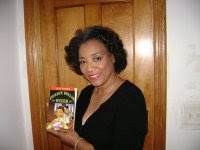April 4, 2008 marks the 40th anniversary of Rev. Dr. Martin Luther King's murder. I am proud to say that on that day I will be in Memphis not only to honor Dr. King, but as a personal recommitment pledge to continue working in his legacy for the betterment of all people. My next column will report on my journey and impressions of all the events taking place on this historic occasion.
Dr. King paid the ultimate price in giving his life while down in Memphis to support the garbage workers during their strike. One of things I question in Dr. King's legacy is placing too much emphasis on his "I Have A Dream" speech and not enough attention on all the grass-root issues that were the core of Dr. King's work.
I had originally written a scathing commentary on the ills of certain aspects of the black community. But that is very easy to do. Offering solutions-now that's different. It requires effort and thought. And if I am to honor Dr. King by working and doing things in his honor, harsh words aren't a solution. They're just a temporary venting of anger.
Am I angry? Yes. Certain aspects of what is occurring today in the black community should spark everyone's anger. School shootings, drug selling, the acceptance of profanity as a daily part of too many black people's speech, gangster rap music that promotes violence and sexual promiscuity, our dismal school system, the almost total disappearance of the black business community, and black politicians at every level of government who spend more time promoting themselves or blaming everything on the "evil Republicans" rather than working to bring about real solutions to real problems. All of that, plus a lot more, is why I'm angry.
Anger is at the heart of many of the problems that overshadow the black community. Worst, the anger is so great, we have tended to accept it rather than confront it. One of the best solutions to interrupting this cycle of anger is to work to become the type of person Dr. King would be proud of. We can become that person by making a commitment to living the rest of our lives as Dr. King did.
If anger is at the core of all our problems, how do we begin to solve those problems when each one seems to overshadow the last? By redirecting our anger into a positive spirit and becoming the type of man, woman or child who would make Dr. King proud. One of the simplest ways of doing that is beginning to respect ourselves, then respecting others. Can something as simple as respecting oneself really begin to solve our problems? In a nutshell, yes! We begin by liking and caring about ourselves. Then we like and care about others. Many a drama in our community results from the simple act of one person disrespecting the other.
I'd like to propose that in honor of Dr. King, we immediately make a personal commitment to being nice to one another and begin to acknowledge each other. Those acknowledgments aren't long, drawn-out conversations. Rather, it's a simple commitment to just speaking to each other. I call it my "Hey Neighbor" program. Basically it means that as we walk or drive, or whenever we come across another black person, we start to acknowledge each other with a simple "Hey" or "Howdy" or even a "Whassup?"
That is the first step in eliminating the "invisible man" syndrome.
It means that we take the time to smile at children and let them know we care about them and their future. It means being nice to neighbors and just waving at them. It means making Austin a community and not just a neighborhood we happen to live in. It means making Austin a place Dr. King would be proud to call home and not one where he would hold his head down in shame.
Best of all, it won't cost a single dime. The only cost involved is the time it takes to live up to the legacy of Dr. King. Make your own commitment and get your family and friends to do the same. We already know what anger and hatred have done. Now is the time to try something different.
You Finished The Book - Now What Did You Think
13 years ago

No comments:
Post a Comment